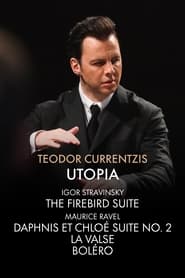detail profile utopia

Riwayat Hidup
Utopia is an international orchestra and choir founded by the conductor Teodor Currentzis.
It seeks to bring together the best musicians from all around the world, which is structurally, financially, and organizationally independent of any other collectives and institutions.
The cast of the orchestra varies depending on the instruments stipulated in the score.
116 musicians from 30 countries have taken part in the first project.
Info Pribadi
Peran Yang Di Mainkan Utopia
 A return to its roots for...
A return to its roots for...Opéra National de Paris: Castor et Pollux by Jean-Philippe Rameau 2025
A return to its roots for Castor et Pollux, Jean-Philippe Rameau’s lyric tragedy first performed in 1737 at the Académie royale and inspired by the mythological episode of the Gemini. Rarely performed in its original version – the score was reworked by Rameau himself in 1754 –, this daring work plays on contrasts and expressiveness, as in the famous “Tristes apprêts”. The aria is sung by Télaïre mourning the death of her fiancé Castor, killed in battle, before his twin brother Pollux descends into the Underworld to ask his father, Jupiter, to bring him back to life. While this opera celebrates brotherly love, its prologue poses an essential question for director Peter Sellars: how do you stop a war and its attendant hatred and resentment?
 Utopia the new orchestra of conductor...
Utopia the new orchestra of conductor...Teodor Currentzis: Utopia 2022
Utopia, the new orchestra of conductor Teodor Currentzis, can be experienced for the first time in Vienna on its inaugural tour with the 1945 version of Igor Stravinsky’s ‘The Firebird’ and Maurice Ravel’s Suite No. 2 of ‘Daphnis et Chloé’, ‘La Valse’ and ‘Boléro’.
